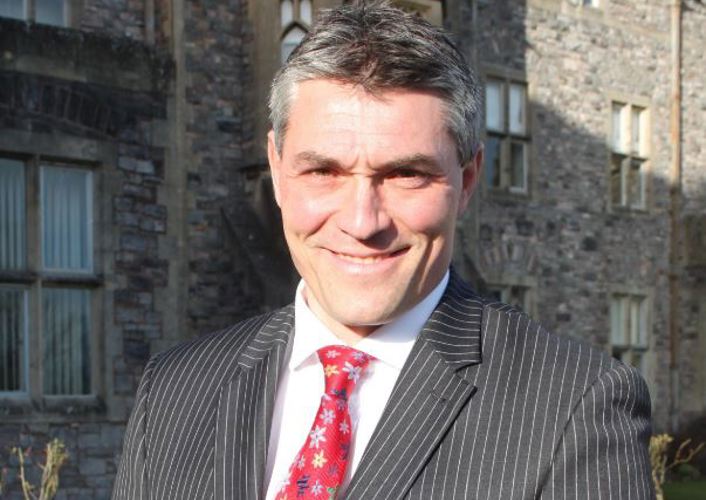"Schools, like so many institutions, mirror and perpetuate mental health myths and it is up to us as teachers to be at the vanguard of change"

Ed Burnett, deputy head at Taunton School, discusses what mental health support is available for schools and details why his school chose to hire a mental health nurse.
'Fewer than two in five teachers can get help for pupils' mental health problems'. This eye-catching headline popped up in my news feed last week, courtesy of ISC.
I recently moved schools from Surrey to Somerset and can attest first hand to the differences between regions in the level of mental health support available. Arriving as Deputy Headmaster at Taunton School, I had to make a decision: either wait for suitable funding to arrive locally, or install excellent provision in the school on my own initiative.
Like other schools, we had tried training - the two day Youth MHFA course was received enthusiastically by our pastoral staff, but without constant professional input it is hard to take INSET and make it part of your everyday practice. So, at Taunton School, we decided to employ a Mental Health Nurse who had over 30 years' experience in local CAHMS work. This transformed the care we could offer. Now, our pupils can get direct and immediate access to the right care and, more importantly, House parents are able to bounce ideas off an expert and constantly refine their own practice. After all, high quality care occurs when mental health issues are identified early, and this can only occur when teachers are aware, trained, and confident in their practice. In more difficult cases our mental health nurse is also able to refer us swiftly to the right people and the right services - not always easy when dealing with the NHS behemoth which is creaking at the seams, with mental health services in particular under immense strain.
There have also been unintended benefits: our mental health nurse has challenged the school culture, asking us to question why so few boys are coming forward to talk about their problems and also introducing group work to PSHEE lessons in the senior school. It was revealing to see Year 10 getting excited by 'Circle Time' - 'oh, I used to love this in prep school' - but as the students discuss issues like bullying, language, gender identity and, more pointedly, ‘does Taunton School encourage boys to talk up about mental health?’, we can see the change happen in front of us.
The issue of culture is mirrored nationally. The campaign, ‘Time to Change: let’s end mental health discrimination’, identifies two of these:
- Myth: People with mental health problems don't experience discrimination.
- Fact: 9 out of 10 people with mental health problems experience stigma and discrimination.
- Myth: It’s easy for young people to talk to friends about their feelings.
- Fact: Nearly three in four young people fear the reactions of friends when they talk about their mental health problems.
Schools, like so many institutions, mirror and perpetuate this problem and it is up to us as teachers to be at the vanguard of change so that the generation we care for will not perpetuate the same stereotypes as they move into the workplace. In the meantime, it has been wonderful to see a significant change in the imbalance between girls and boys seeking help and speaking up about their mental health. When I arrived at the school the ratio of female students to male students who had spoken up about their mental health issues was 2:1. After just sixth months of having a Mental Health Nurse this ratio has moved to 1.5:1. This tells us that there is clearly still plenty of work to do, but that we are moving in the right direction. It is also fair to say that it requires a team effort. Senior leaders and managers must embrace the initiative and having members of staff standing up and talking about their own mental health issues is a game changer – when our Development Cricket Coach Marcus Trescothick did this, you could feel the atmosphere change and the response from students was amazing – mental health was humanised and demystified in a single assembly.
Of course, having an on-site mental health nurse is not a solution to all the issues we face in schools: it is still vital to work with outside agencies. But the stress and worry around the question 'can I help this pupil?' has disappeared. Increasingly, our pupils feel empowered to deal with problems in a culture which is beginning to talk and deal openly with a problem which is not going to go away.

